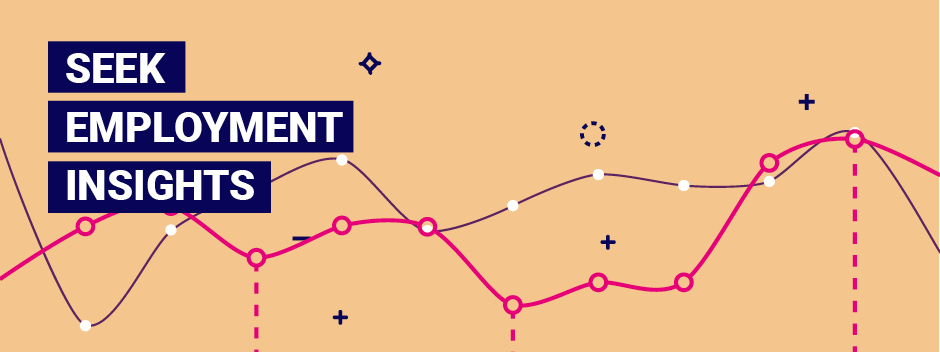Research conducted on behalf of SEEK reveals how the working lives of Kiwis have been altered this year, what people are thinking and feeling about the job market now, and the impact of Auckland’s lockdown.
Here are the latest insights.
Kiwis feeling more optimistic
Despite the resurgence of COVID-19, 68% of Kiwis are feeling optimistic about future employment prospects (up 3% from July) and 71% are feeling secure in their jobs (up 5% from July).
The number of Kiwis actively searching for jobs has grown by 4% to 22% and, while 50% say they’re not actively looking jobs, they are keeping an eye on what’s out there – and that’s an increase of 4% from July.
Impact of Auckland’s August lockdown
Despite the lift in optimism, Auckland’s recent lockdown has impacted people’s working situations with only 10% feeling like things are returning to normal (down 7% from July). In fact, 27% feel like their work situation is very different (up 12% from July) and 26% are working from home, which is a 10% increase from July.
Doug Steel, Senior Economist at BNZ, says the resurgence of COVID-19 in August was felt across the economy.
“There was an immediate impact on retail activity,” he says. “As Auckland accounts for more than a third of the economy, a slump in activity there influences other parts of the country.”
“Various tranches of the wage subsidy are also due to finish up soon, depending on when firms applied for them,” adds Steel. “But the resurgence of the virus in Auckland created more disruption and so there may be more mechanisms put in place to support the economy.”
The pandemic has spurred people to reconsider work: 45% of those whose work situation has been negatively impacted by COVID-19 are now rethinking their career, and this may require reskilling or retraining.
The pandemic has also changed people’s sense of job security, with 60% of Kiwis open to taking a lower salary for more security and 67% viewing job security as more important now compared to pre-COVID times.
Michelle Visser, Co-director of recruitment firm Fusion Partners, says Kiwis have become more risk averse in the job market.
“People are taking considered steps with their due diligence to understand the financial position of the businesses they might be joining,” she says. “They are also appreciating a more in-depth recruitment process. This might include meeting more people in the business in order to get a better feel for the climate.”
Visser says recruiters may need to spend more time with candidates to help allay their insecurities.
“We always invest time with candidates, but we’re now spending even more time with them to understand their concerns,” she says. “We’re also working more closely with clients on their proposition and how we can assure people that their roles won't be at risk. This often comes down to more transparency around business performance to help candidates feel more secure.”
Clear communication is one of the best ways to boost employee confidence in the current climate, says Kim Culpan, Head of Organisational Development at New Zealand’s largest telecommunications infrastructure company, Chorus.
“It’s difficult to guarantee anything at the moment, but it’s so important to communicate with people, because it can help them to feel confident that you have their interests in mind and that you are being open and honest,” she says.
Chorus builds and manages an open access internet network across New Zealand and employs approximately 850 across New Zealand.
“We have continued to remind our people that we are an essential service and that the work we are doing in New Zealand right now is more important than ever,” says Culpan.
Culpan says Chorus has a high level of employee engagement and it recently adjusted its recruitment approach to promote the benefits of its workplace culture and inclusive values.
“Prior to COVID-19, we began looking into how our organisation was perceived in the market and we discovered that all the great things about working here were not really known outside of our business,” says Culpan. “We have started working on our employee value proposition out in the market and promoting why Chorus is a great employer to consider.”
This includes highlighting its employee value proposition in job ads, says Culpan.
“We highlight how Chorus is an inclusive employer,” she says. “For instance, we promote our equitable parental leave policies so that people understand that all parents have access to it when they work for us.
“There’s a lot of uncertainty out there at the moment, but we want to be clear about the kind of employer we are.”
Read more about creating and promoting a strong EVP here.
Source: Independent research conducted by Nature on behalf of SEEK. Interviewing 4000 Kiwis annually. Published September 2020.

-HIR-Breaker%20images(2).jpg)
-HIR-Breaker%20images2.jpg)
-HIR-Breaker%20images3.jpg)
